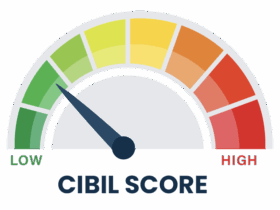A demat account is essential for participating in India’s stock market, as it holds shares and securities in electronic form. While the convenience and security it offers are undeniable, managing the costs associated with a demat account can make a significant difference to your overall returns. From annual maintenance fees to transaction charges, optimizing these costs ensures you retain more of your profits.
Here’s how you can efficiently manage demat account expenses and minimize holding costs.
Understand the Types of Charges
Before diving into cost-cutting strategies, it’s important to understand the charges associated with demat accounts:
- Account Opening Charges: Some brokers levy fees when you open a demat account, although many now offer free account openings.
- Annual Maintenance Charges (AMC): This is an annual fee charged to maintain your account, varying between brokers.
- Transaction Fees: These are levied for debit transactions, such as selling shares.
- Custodian Fees: Rarely charged now, these were earlier applied for maintaining your securities.
Being aware of these costs will help you identify areas to save.
Choose a Zero Brokerage Demat Account
A popular option among traders and investors today is a zero brokerage demat account. These accounts waive off brokerage charges for delivery trades, making them an excellent choice for long-term investors. By opting for brokers offering zero brokerage plans, you can significantly cut down on costs associated with share purchases and holdings.
Opt for Low-Cost Brokers
Brokers in India generally fall into two categories: full-service brokers and discount brokers. Full-service brokers offer a wide range of services, including research and advisory, but their charges tend to be higher. Discount brokers, on the other hand, provide basic services at a fraction of the cost. If you’re an independent investor comfortable making your own decisions, a discount broker can help you reduce costs without compromising efficiency.
Additionally, compare annual maintenance fees across brokers before making your choice. Some brokers even waive AMCs for the first year or offer lifetime free plans.
Evaluate the Demat Account Opening Process
The demat account opening process should not only be seamless but also cost-effective. Look for brokers offering minimal paperwork and quick online setups. Many brokers provide free account openings during promotional periods or to attract new customers, which can help you save on initial costs. Ensure that the terms and conditions for fee waivers are clear to avoid hidden charges later.

Consolidate Multiple Accounts
If you hold multiple demat accounts, consider consolidating them to save on AMCs and other recurring charges. Maintaining multiple accounts may lead to unnecessary duplication of costs, especially if some accounts are underutilized. Before closing an account, ensure that all your holdings are transferred to the new account to avoid additional transfer fees.
Monitor Idle Investments
Holding securities you no longer need can increase your account’s maintenance burden. Periodically review your portfolio and sell shares that are no longer part of your strategy. This reduces the holding costs associated with demat accounts and frees up funds for better opportunities.
Bundle with a Trading Account
Many brokers offer a trading account bundled with a demat account for convenience and cost savings. Bundled services often come with reduced charges for transactions and maintenance. Ensure that the integration between the demat and trading accounts is smooth to avoid inefficiencies during trades.
Keep Track of Charges and Alerts
Regularly review your account statements to identify unexpected charges. Brokers often update their fee structures, and being aware of these changes can help you stay proactive. Set up alerts for changes in fee structures or promotional offers, which can help you switch to a more cost-effective plan.
Look Out for Promotional Offers
Many brokers periodically offer discounts on charges or special pricing plans, such as free AMCs for a limited period. By staying updated on such offers, you can reduce your overall costs.
Avoid Frequent Small Transactions
Transaction fees are often applied to every sale of securities. By avoiding frequent small transactions and opting for bulk trades instead, you can minimize these charges. This strategy is particularly helpful for long-term investors.
Conclusion
Optimizing demat account charges and minimizing holding costs is key to maximizing your investment returns. From selecting a broker with low fees or a zero brokerage demat account to consolidating accounts and avoiding unnecessary transactions, every small step contributes to reducing costs. Additionally, by understanding the demat account opening process and monitoring charges regularly, you can stay ahead of hidden fees. A well-optimized account not only saves you money but also ensures a smoother and more rewarding investing journey in India’s dynamic markets.








